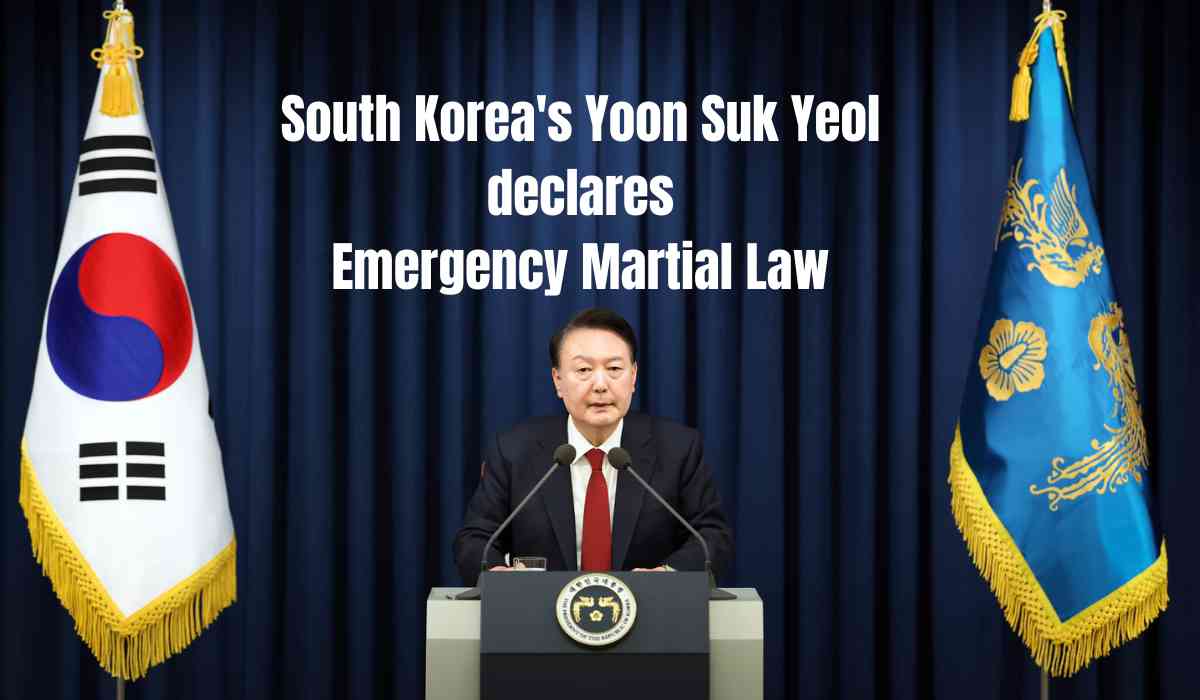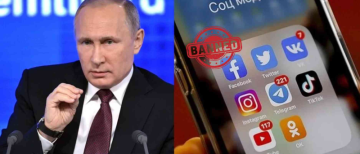On December 3, 2024, South Korea witnessed an unprecedented political crisis that shook the nation to its core. President Yoon Suk Yeol, in a dramatic and controversial move, declared martial law, accusing opposition forces of threatening the country’s democracy. However, within hours of issuing the decree, Yoon reversed his decision amidst widespread protests and political backlash. What followed was a whirlwind of chaos, with calls for his resignation and even impeachment from both lawmakers and citizens.
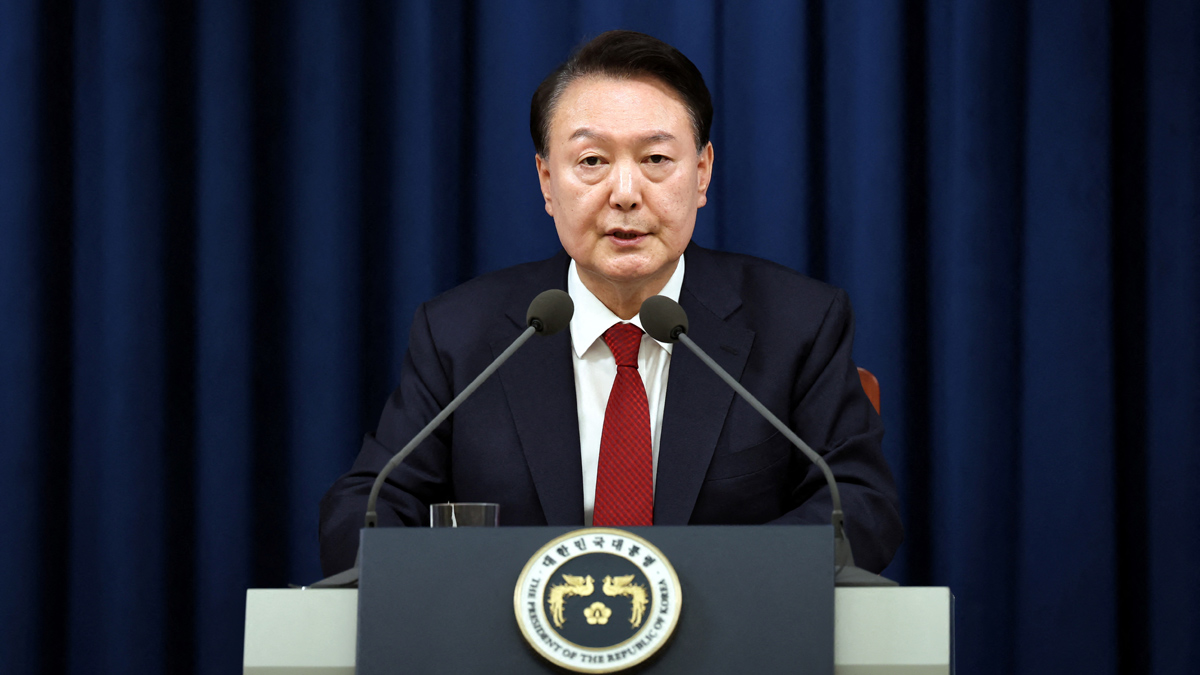
The Sudden Declaration of Martial Law
Tuesday evening (December 3) began like any other day in South Korea. However, by 10:30 pm local time, the country was thrust into a state of emergency when President Yoon Suk Yeol declared martial law, marking the first such occurrence in over four decades.
Martial Law in South Korea: What Does It Mean?
Martial law in South Korea is a legal provision written into the country’s constitution. It allows the president to impose such a state in response to military threats or to maintain public safety and order. President Yoon, in his televised address, accused the country’s main opposition party, the Democratic Party, of sympathizing with North Korea and engaging in “anti-state” activities.
Yoon's announcement included the following decrees:
- Banning Political Activities: Prohibiting political parties, strikes, and gatherings that incite social unrest.
- Media Control: Bringing media outlets under government control, effectively curtailing press freedom.
- Arrests Without Warrants: Allowing arrests without warrants for violations of martial law.
In his address, Yoon emphasized the threat posed by North Korea and called for the protection of South Korea's democratic order from what he described as pro-North Korean “anti-state forces.”
This was the first time in 40 years that martial law had been imposed in South Korea. The last such instance was in 1980 following the assassination of then-President Park Chung-hee, when General Chun Doo-hwan declared martial law during his attempt to seize control of the government.
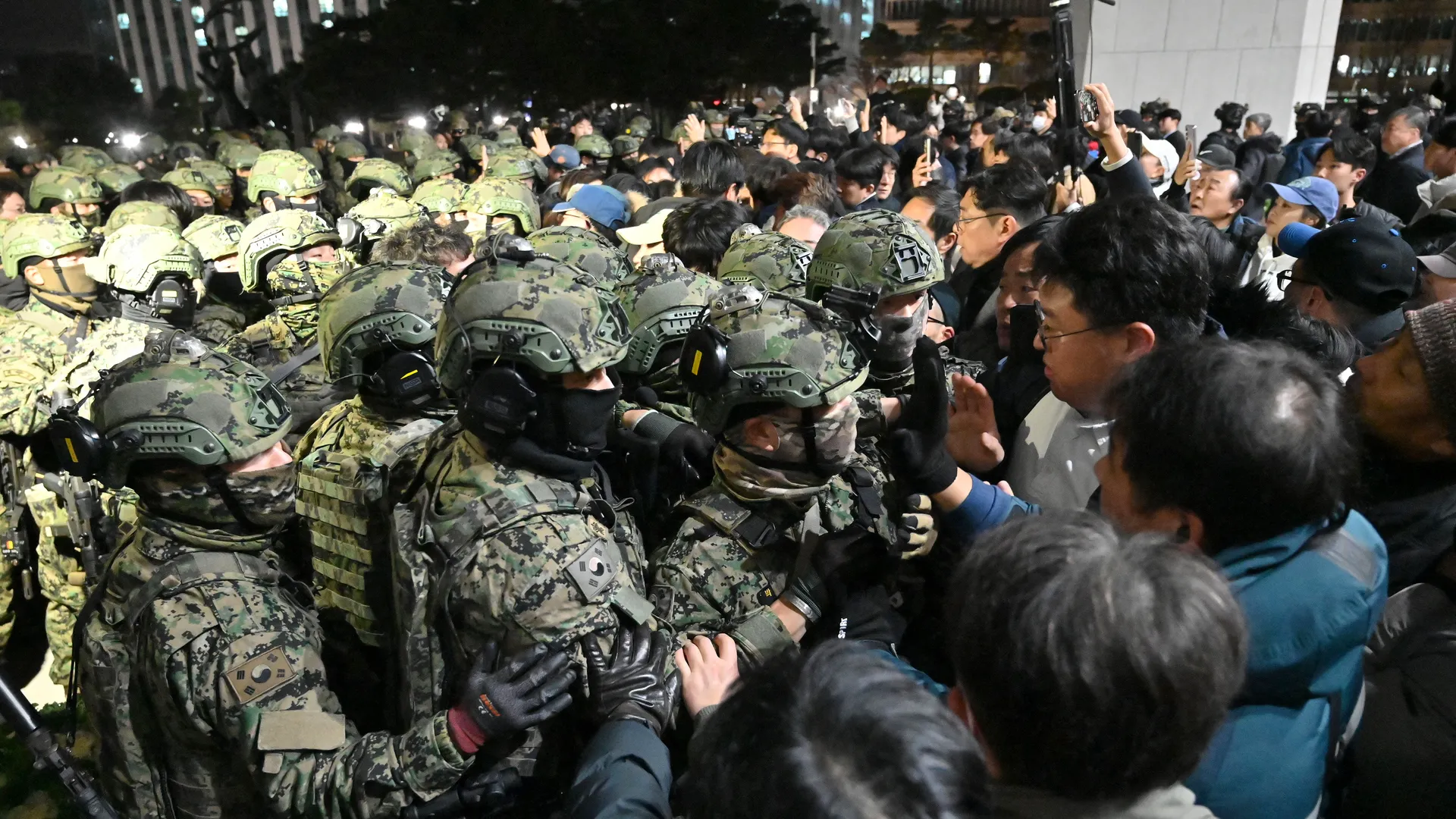
Immediate Backlash: Protests and Political Chaos
Yoon's declaration quickly sparked outrage across South Korea. Protests erupted almost immediately, with thousands taking to the streets, chanting slogans calling for the president’s resignation. Protesters expressed disbelief over the dramatic and late-night announcement, with some suggesting that Yoon’s actions were impulsive and unfounded.
The opposition was quick to react, with the Democratic Party (DP) led by Lee Jae-myung denouncing Yoon’s move as illegal and unconstitutional. DP officials even went so far as to label the president’s actions an attempted “coup d'état.”
Meanwhile, within the National Assembly, approximately 190 lawmakers stormed past security forces to challenge the president’s martial law decree. They held a vote to revoke the decree, with the result being unanimous support for its cancellation. The political tension was further heightened when members of Yoon’s own party denounced the move, leading to an apology from the party chief and demands for an explanation from the president.
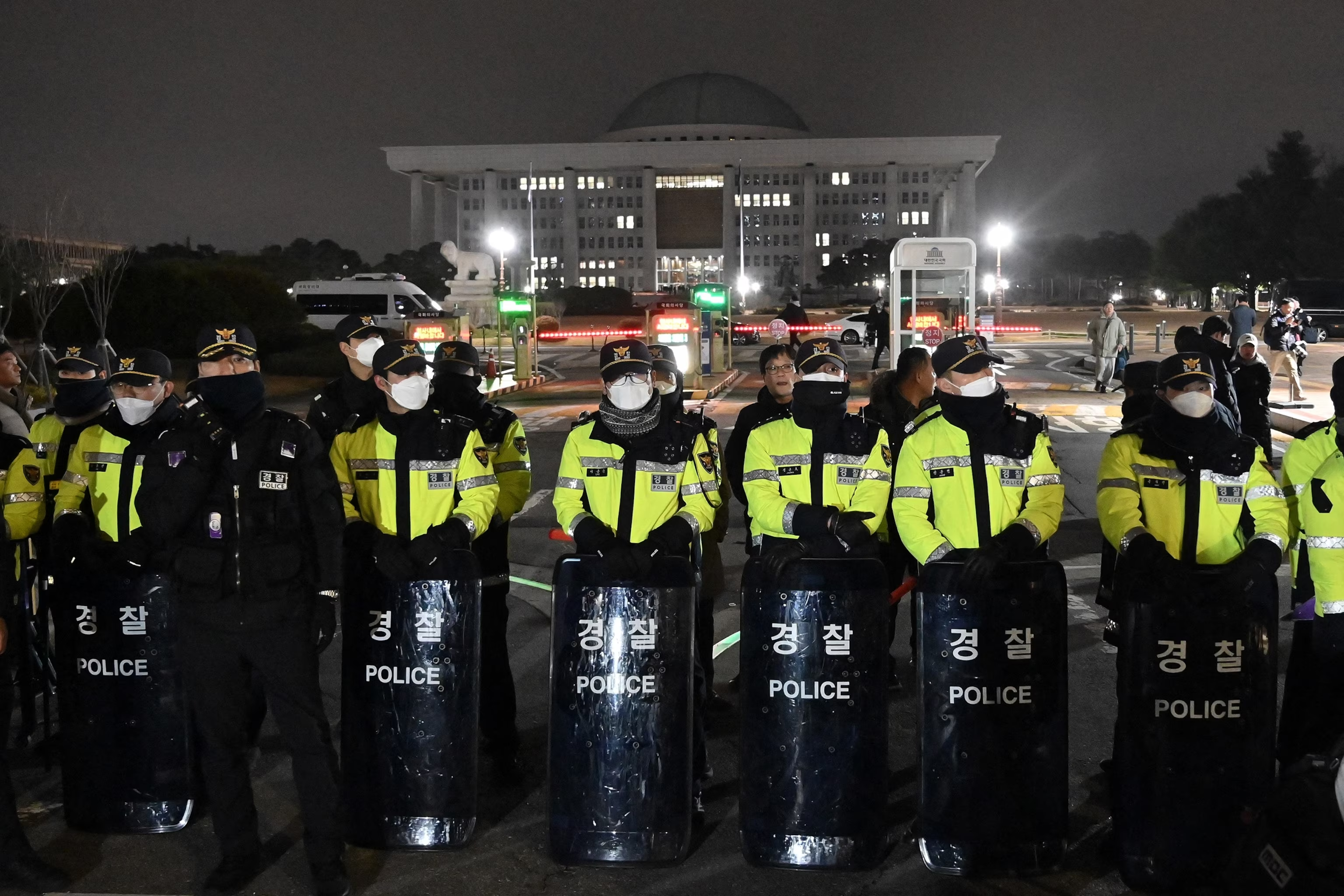
The Rapid Reversal of Martial Law
Just hours after his initial declaration, President Yoon found himself under immense pressure. In a televised address early the next morning, he announced that martial law would be lifted in compliance with the National Assembly’s request.
- Immediate Rescinding of Martial Law: Yoon’s reversal was a direct result of the unanimous vote in the National Assembly, which required the president to comply.
- Military Withdrawal: The military, which had been deployed to enforce the martial law, was withdrawn shortly after the announcement.
Despite this, the damage had already been done. The quick U-turn from a declaration of martial law to its sudden revocation raised questions about Yoon’s leadership and decision-making capabilities.
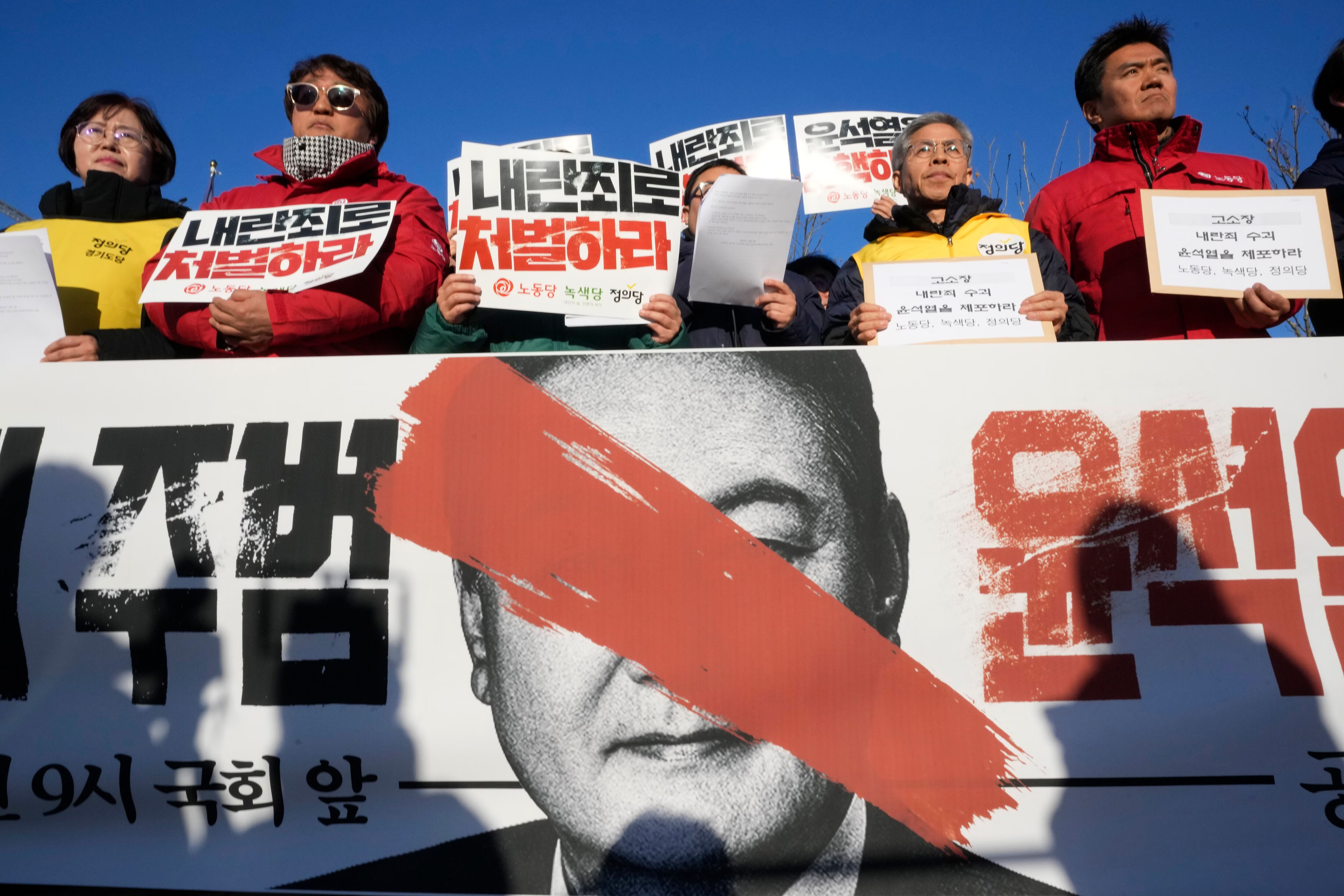
Aftermath: Calls for Resignation and Impeachment
Yoon’s hasty actions did not go unnoticed, and the backlash was swift and intense. In the wake of his decision, South Korea’s political landscape became even more volatile.
- Resignations and Political Fallout
- Resignations in Yoon’s Administration: Following the declaration, Yoon’s chief of staff and more than 10 senior secretaries resigned. These resignations signaled growing dissatisfaction with his leadership within his own administration.
- Internal Party Criticism: Even members of Yoon’s own political party expressed strong disapproval of his decision, with calls for the resignation of the defense minister, who had allegedly recommended the imposition of martial law.
- Opposition Calls for Impeachment
The main opposition party, the Democratic Party, demanded that Yoon step down immediately. They accused him of committing “treason” by attempting to impose martial law without legitimate cause. According to the DP, this was an act of desperation in the face of mounting political scandals.
-
Impeachment Threats: The opposition made it clear that if Yoon did not resign, they would initiate impeachment proceedings. For the impeachment to proceed, a majority of lawmakers, more than two-thirds, would need to vote in favor. After that, the constitutional court would hold a trial, where six of the nine justices would need to vote in favor of the president’s removal for it to succeed.
-
Support from Labor Unions: South Korea’s largest labor union also joined the chorus of voices calling for Yoon’s resignation. The union announced an indefinite general strike, demanding that the president step down.
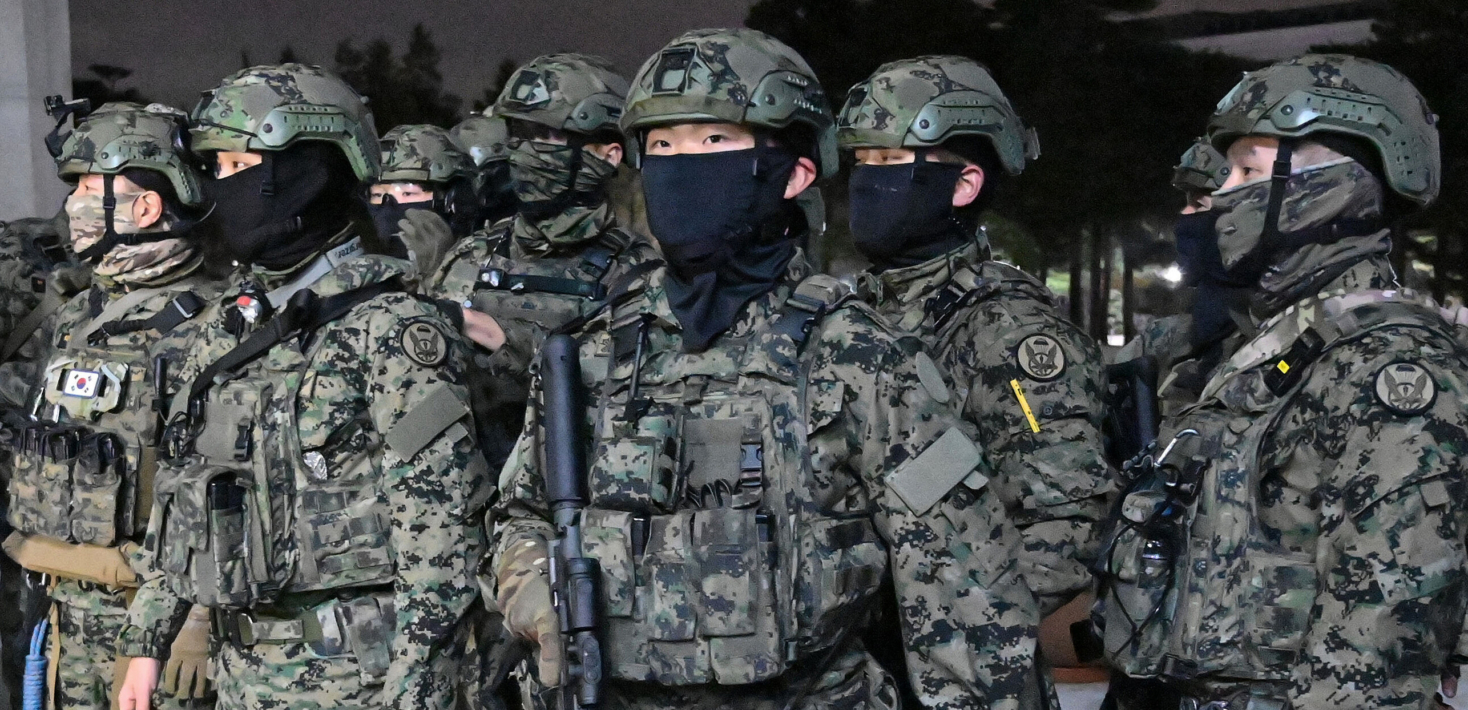
What’s Next for South Korea?
The chaotic sequence of events has thrown South Korea’s political stability into question. The imposition and revocation of martial law have resulted in significant political turmoil, with Yoon's credibility severely damaged.
National Implications
- Potential Impeachment Proceedings: If impeachment proceedings go ahead, the process could drag on for months, leaving the country’s political system in a state of uncertainty. The implications of such a delay would be far-reaching, especially in terms of policy-making and governance.
- Foreign Policy Impact: South Korea’s international reputation has also taken a hit, with experts arguing that the political instability could have severe consequences for the country’s foreign relations. Some even suggest that Yoon’s actions have damaged South Korea’s standing more than the January 6 riots did for the United States.
Experts note that Yoon’s declaration of martial law was both a legal overreach and a political miscalculation, unnecessarily risking South Korea’s economy and security. Leif-Eric Easley, a professor at Ewha University in Seoul, commented that Yoon appeared to be a politician under siege, making a desperate move in response to mounting scandals and institutional obstruction.
South Korea’s brush with martial law has exposed deep political divisions and raised serious questions about the stability of President Yoon’s administration. While the immediate crisis has been averted, the repercussions of this move will reverberate through the nation’s political and social landscape for months to come. Whether Yoon will be able to weather this storm or face calls for his removal remains uncertain, but what is clear is that this unprecedented episode has left a lasting scar on South Korea’s democratic institutions and its international image.
With inputs from agencies
Image Source: Multiple agencies
© Copyright 2024. All Rights Reserved Powered by Vygr Media.

